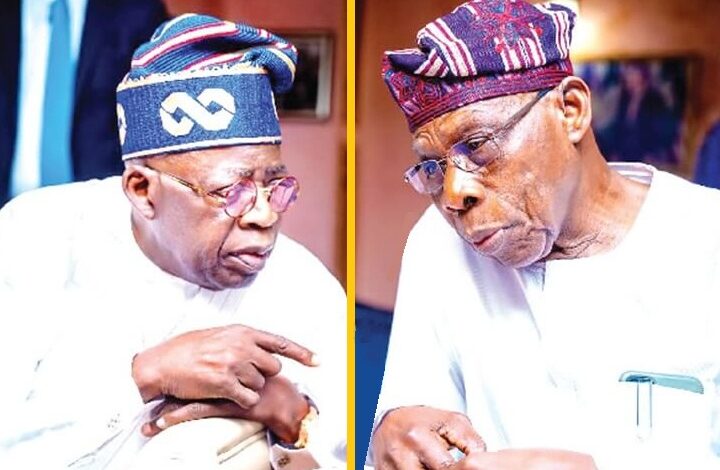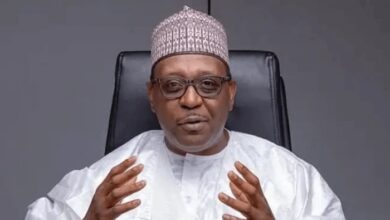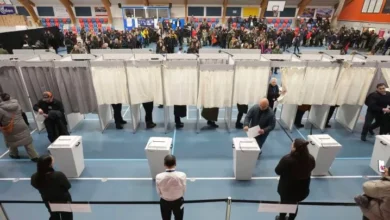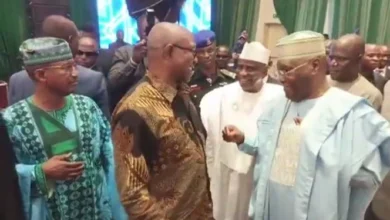Obasanjo, Tinubu: Supreme Enablers of Constitutional Outrage ~ by Chidi Odinkalu

“The judiciary have a wide scope for making political decisions.” ~ J.A.G. Griffiths, “Constitutional and Administrative Law’ in Peter Archer & Andrew Martin (Eds), More Law Reform Now, 55 (1983)
The judgment of the Supreme Court of Nigeria on 19 January 2006 concerning the state of emergency in Plateau State came down 20 months after the proclamation and 14 months after the emergency had expired. When it was eventually issued, the judgment was worse than an anti-climax.
The most important thing about the decision was not the jurisprudence of the court but when the court chose to hear the case. Nearly two decades later, the same Court is likely to repeat a familiar script, serving as an apex enabler of power amok. The people of Rivers State are paying the price in the currency of constitutional outrage. As always, the facts matter.
Former Chairman of Nigeria’s National Human Rights Commission (NHRC), Prof. Chidi Anselm Odinkalu
By Statutory Instrument No. 4 of 2004, issued on 18th May 2004, Nigeria’s president Olusegun Obasanjo, a retired four-star General, proclaimed a State of Emergency over Plateau State in north-central Nigeria. Known as the State of Emergency (Plateau State) Proclamation, S.I. No. 4 of 2004 it provided that “the State shall, for the duration of the emergency, be administered by an Administrator who shall be appointed by me and operate on the basis of such Regulations that may, from time to time, be issued by me.”
The duration of the emergency proclamation was six months.
At the time, President Obasanjo was elected on the platform of the Peoples’ Democratic Party (PDP). Beyond the federal level, the same party ruled or controlled 28 out of the 36 states in Nigeria. Joshua Dariye, the governor suspended in Plateau State by the emergency, was also elected on the platform of the party.
Having suspended the governor, his deputy and the Plateau State House of Assembly in exercise of powers purportedly exercised under the emergency, President Obasanjo appointed Maj.-General Chris Alli, a former Chief of Staff of the Nigerian Army, as the Emergency Administrator for Plateau State. The National Assembly quickly voted to afford the president the parliamentary reinforcement required under the constitution.
In the name of Plateau State and its people, the suspended governor, Joshua Dariye, instructed legal proceedings invoking the original jurisdiction of the Supreme Court in respect of disputes between a state and the federal government. Among other prayers, he requested the Supreme Court to determine whether the relevant provisions of the Constitution and of the Emergency Powers Act of 1961 empowered the president to suspend elected officials of the state.
The Supreme Court took its merry time before scheduling the case for argument. By the time it took arguments in the last quarter of the following year, the legal issues were still substantial, but the actual emergency had long lapsed.
In its judgment, the Court ruled that the proceedings lacked the requisite legal standing because the suspended governor did not have the powers to instruct proceedings on behalf of Plateau State, and the Emergency Military Administrator had not authorized nor supported the case. It also added that as the emergency was spent, there was no longer any live dispute involved.
This was diabolical judicial capitulation. If, as seemed evident, the court was clearly reluctant to get itself embroiled in the controversy, it would have struggled to find a more illogical piece of reasoning on which to justify casualizing the issue as a matter of institutional comfort for the judiciary.
The most charitable anyone could be about the idea that the fate of the case should hang on the consent of the Military Administrator, the legality of whose appointment was in question, was that it was cynical jurisprudence. At the time of the judgment, in any case, the question of whether or not the president had the power to suspend elected state officials was not at all academic.
Yet, through an act of commission that was deliberately made to look like a routine omission, the Supreme Court enabled the Plateau State emergency proclamation, setting a precedent that ransacked the constitution but which suited the essentially military temperament of a soldier and wartime General whose tolerance for being second-guessed by anyone was notoriously thin.
Nearly two decades later, on 17th September 2025, Nigeria’s incumbent President Bola Ahmed Tinubu, issued an announcement lifting the six-month-old state of emergency that he had imposed on Rivers State on 18 March. The announcement coincided with the expiration of the period of six months.
Repeating the precedent set by President Obasanjo in 2004, President Tinubu, in proclaiming the emergency in Rivers State, also suspended all elected state-level officials, including the state governor and the members of the Rivers State House of Assembly.
Unlike the situation in 2004, however, the party of the president this time is the All-Progressives Congress (APC) and the elected state officials at the receiving end are in the PDP, which has been in opposition since 2015.
At the National Assembly, which the Constitution requires to ratify the emergency proclamation by a qualified (two-thirds) majority, both chambers passed it by a voice vote. This made it impossible to compute compliance with the constitutional arithmetic for lawful emergency proclamation. Naturally, therefore, the matter was fated to end up in controversy.
President Tinubu acknowledged as much in his announcement of the end of the Rivers State emergency, confessing awareness of the fact that there were “over 40 cases in the courts in Abuja, Port Harcourt, and Yenagoa, to invalidate the declaration.”
With a touch of presidential hubris, he added that “that is the way it should be in a democratic setting. Some cases are still pending in the courts as of today.”
Most of the courts that have decided on the case did so by way of rulings designed to ensure that there was no judgment. One of the cases pending in the courts is SC/CV/329/2025, filed on 9th April 2025, three weeks after the emergency proclamation in Rivers State, by 11 PDP State governors.
Their intervention ensured that the case avoided the delays inherent in navigating the lower rungs of the judicial ladder. There was good reason to believe that the court would give the matter timely consideration.
On 3rd March 2023, the Supreme Court decided Suit No. SC/CV/162/2023 was instituted by 10 States exactly one month earlier, on 3 February, to challenge the redesign of the national currency on the eve of the 2023 elections.
The following year, the same court took exactly 45 days to decide on 11th July, the case on local government autonomy filed by the Federal Government against the states on 25 May 2025.
If the hope of the PDP governors in the Rivers State case was to give the apex court a timely opportunity to adjudicate the matter, it was misplaced. When the Plateau State emergency case was being given the judicial runaround under President Obasanjo two decades earlier, Rivers State was one of the poster boys of the PDP administration.
This time, the state is a political prize for which the incumbent president is willing to mint a currency entirely of his own making. The Supreme Court has enabled him to have his way as he pleases, with neither care nor heed for what the Constitution requires.
As I write, the Supreme Court is still twiddling its elevated judicial thumbs while evidently divining the magical body language of the presidency. The court has chosen to enable emergency rule of manifestly dubious constitutionality by allowing the clock to run out on the proclamation. Its choice of that course of action has been both wilful and cynical. It is also clearly political.
The administrative feint of the Supreme Court in kicking the Rivers State emergency case into the judicial long grass is a piece of judicial legerdemain whose place in the pantheon of judicial infamy is assured.
It is also a piece of catastrophic success for the administration. With Supreme benediction, every elected state official now holds office at the sufferance of the presidency. The true scale of its perverse consequences for constitutional government in Nigeria will become apparent as the 2027 elections approach.
A lawyer and a teacher, Chidi Anselm Odinkalu can be reached at chidi.odinkalu@tufts.edu.
The post Obasanjo, Tinubu: Supreme Enablers of Constitutional Outrage ~ by Chidi Odinkalu first appeared on Diaspora Digital Media DDM.





